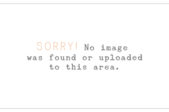A quasi-contract is a legal concept that refers to an agreement between two parties that is not legally binding but is enforced by the courts to prevent one party from being unjustly enriched at the other`s expense. In other words, a quasi-contract is a legal remedy that is used when there is no actual contract between the parties, but the court believes that one party has unjustly benefitted from the other`s actions or services.
A quasi-contract is also known as an implied-in-law contract or a constructive contract. This type of contract is not created by an agreement between the parties, but rather by the law itself. This means that even if the parties did not intend to enter into a contract, the court can still enforce a quasi-contract if it deems it necessary.
For example, let`s say that John is in a car accident and is taken to the hospital. The hospital provides him with medical treatment, even though John does not have health insurance. The hospital can later sue John to recover the cost of the medical treatment, even though there was no actual agreement between the hospital and John. This is because the court would consider John to have a quasi-contractual obligation to pay for the medical treatment he received.
Another example of a quasi-contract is when one party mistakenly pays another party for a service or product. In this case, the court may enforce a quasi-contract to require the receiving party to reimburse the paying party.
In summary, a quasi-contract is a legal concept that is used to enforce an obligation between two parties when there is no actual agreement between them. The court can enforce a quasi-contract to prevent one party from being unjustly enriched at the other`s expense. If you are unsure whether a particular situation involves a quasi-contract, it is best to consult with a legal professional who can provide you with guidance and advice.






